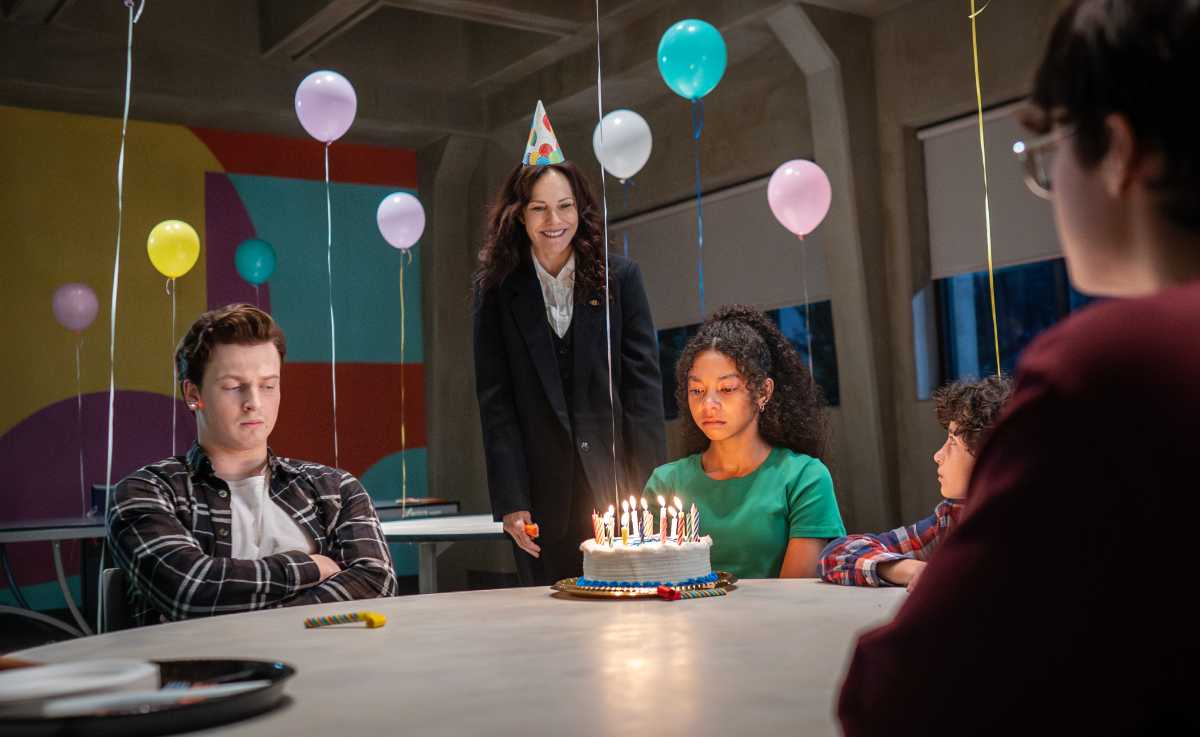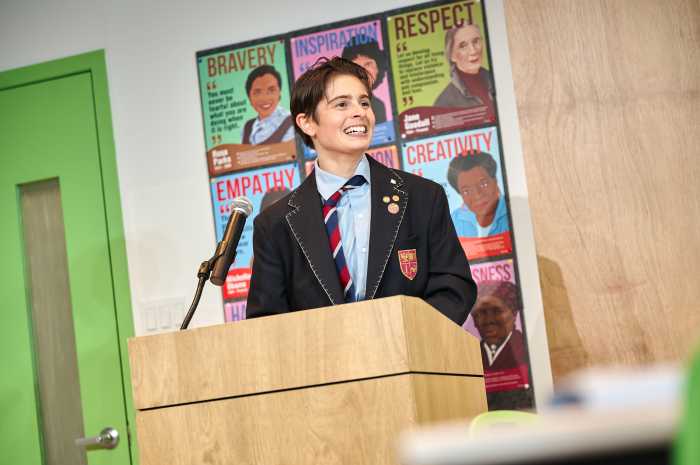Hilary Swank is one of the great movie stars around, period.
That’s not an opinion, it’s a fact. And it’s a fact borne out by her distinct place in Hollywood history, as one of only 14 actresses to have won the Oscar for best actress twice.
She’ll always be remembered for her heartbreaking work in "Boys Don’t Cry" and Clint Eastwood’s "Million Dollar Baby," but her overall resume is defined by a history of intelligent and thoughtfully realized onscreen performances even beyond her most iconic achievements. She has that rare and treasured ability to make a character’s inner life seem powerfully, tangibly real, even in the most quiet and subdued of moments.
Swank is in vintage form in "What They Had," an intimate and affecting new movie from the first-time writer-director Elizabeth Chomko, in which Swank’s Bridget Ertz arrives back home in freezing-cold Chicago from California to help her brother Nicky (Michael Shannon) and father Burt (Robert Forster) care for mom Ruth (Blythe Danner), who has Alzheimer’s.
amNewYork spoke with Swank about the movie, which opens in theaters on Friday.
It feels like you know these people, you know these experiences and an ordinary person can relate to them. Why was a project like that appealing?
I’m so happy that you just said that because that’s exactly how I feel about the movie. … When I first read the script, it felt like when you read a good book and when you’re done, you don’t want it to be over. You feel like you know the characters and you think about them. Rarely do I read a script and I continue to think about the characters and what they would be doing and the choices they’d make in a situation.
What did you relate to in it?
It feels like a slice of life and I related to that greatly. And I related to the character that I played so much because she’s a woman just trying to figure it out. Be strong when she needs to, yet vulnerable underneath. Honor yourself and make decisions for yourself that might contradict what your parents might like for you, just finding your way in the world.
How did you find the level of trust needed to sign on to be directed by a first-time filmmaker?
I think I’ve made a career of taking risks on first-time filmmakers. You don’t ever know with any filmmaker if a film’s going to work. Clint Eastwood said it best when he said, "You always aim for the bull’s-eye, but you don’t always hit it." Clint said that and this is from a person who’s had copious amounts of success and a great understanding of the business and what works and what doesn’t. … I think you just have to go with your instinct.
What does Michael Shannon offer as a scene partner that’s different than your average co-star?
I would say that he mixes it up from take to take. He also comes from a theater background, so he’s used to mixing it up and trying to find new ways to portray a character from performance to performance. And that carries through from take to take. He’ll mix it up, he’ll do something completely different than he did in the take before. Part of what makes that so refreshing is you have to listen. You are in a position where you have to really be present and can’t expect something to be the same way and then you have a variation of your reaction to it.
Looking back on your extraordinary achievement of winning two Oscars in five years, from 2000 to 2005, what’s your primary memory of that period?
Well, besides it being an incredible surprise and coming from a place of just loving something and then that being the manifestation, the outcome, of just diving into something that you love so much, it felt kind of miraculous in so many ways. Especially when you just set out to be an actor and that’s the outcome. I think what it did for me is it’s not as much about having to prove something as much as find stuff of interest. And it’s not that I tried to prove myself before, so it’s kind of hard to explain, it’s more like, you’re constantly trying to say, "You know what, but I can do that, can you give me that opportunity? I can do it." Now, when you have that level of recognition in the work, you can go and look to explore things that say to yourself, "Can you do this?"



































